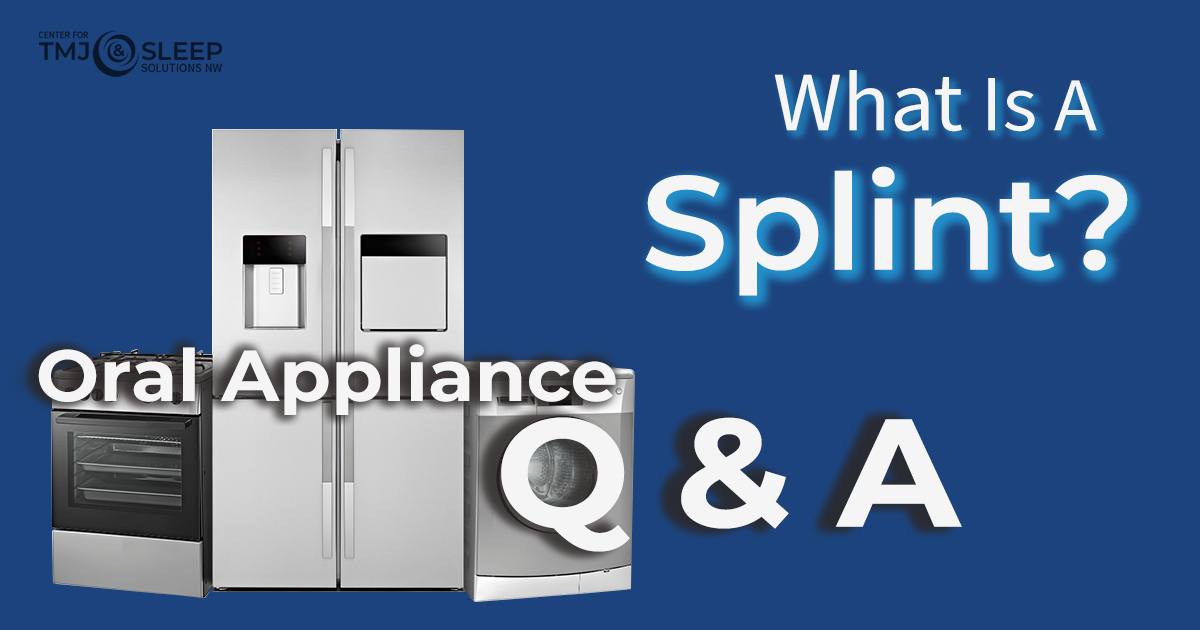
Your TMD Oral Appliance Questions Answered
For TMD, one of the treatment options we have at our disposal is splint therapy. If you have been newly diagnosed with TMD and recommended splint therapy, or you have been putting off receiving treatment because you don’t understand it, we hope to help you by answering some common questions about splints.
What is a splint?
An orthopedic splint, or orthotic, is a removable oral appliance meant to support, stabilize, decompress, and de-load the jaw joints. Splints are normally made of rigid acrylic, and the design can vary based on need and lifestyle. We design custom splints for our patients to meet their specific treatment needs.
What is the difference between a mouthguard and a splint?
The main purpose of a dental mouthguard is to protect your teeth, for example, if you play contact sports. A splint is designed to relieve TMD symptoms, like neck and shoulder pain, jaw tension, ringing in the ears, and headaches, and improve jaw function over time.
Can I use an over-the-counter splint?
The do-it-yourself mouthguards and over-the-counter oral appliances you find in drugstores and pharmacies are not effective and can cause additional harm to your jaw joint. A professionally designed splint is going to be custom crafted to your specific dentition and treatment requirements, giving you the best chance for a successful outcome.
Does wearing a splint hurt?
While it may take time to get used to your splint, you should not feel pain or discomfort when wearing it. If you notice an increase in pain while wearing your splint, tell us right away.
How long will I need to wear a splint?
The amount of time you will need to wear your splint will depend on your particular TMD condition and treatment plan. Your doctor will give you instructions on when and how long to wear your splint each day.
Is splint therapy my only option?
While there are several different TMD treatments available, not all of them are suitable for every TMD patient. After consulting with you and conducting a thorough examination, your TMD doctor recommended splint therapy because it is the most appropriate option based on your specific treatment needs.
If you have questions about TMD therapy, oral appliances, mouthguards, or nightguards, please contact one of our locations in Silverdale, Lynnwood, Bellevue, and Federal Way, WA to connect with a TMJ specialist who can answer your questions and help you understand your treatment options.










